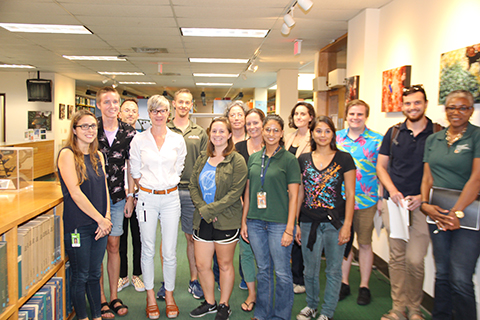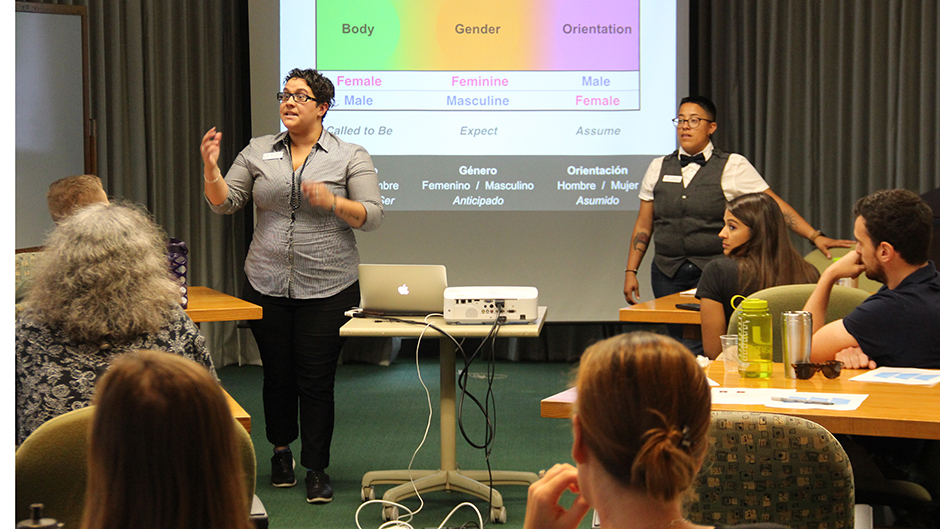“I always enjoy learning about differences and diversities, and this was great to have the workshop here—I was able to start my morning in the lab, attend the workshop, and then go back to work,” said Kaycie Lanpher, a graduate student who attended. “As a teaching assistant, I’m looking at becoming a professor and giving real world examples in my teaching. I want to make sure that I’m giving examples that are not just from the world I know, but one that also includes the experiences of others.”
A group of approximately two dozen attended the session, which was funded by the RSMAS Graduate Career Development Fund, co-sponsored by the University’s Office of Institutional Culture (OIC), and spearheaded by Kay McMonigal, a graduate student in physical oceanography.
“To my knowledge, this is the first RSMAS event that focuses on diversity and inclusion beyond ‘women-in-science’ events,” McMonigal said. “I spend time over on the Coral Gables campus and have been noticing the trainings happening there—IBIS Ally and others related to belonging and diversity—and wondered why we don’t have anything like this on our campus.”
Over the past year, McMonigal sought support from OIC and was awarded the funding grant, geared to develop broad activities of interest to graduate students at Rosenstiel.
Facilitators for the morning session shared the framework of implicit assumptions, showing how the brain leaps to make automatic responses about race and ethnicity based on a range of unconscious factors. Jen Lopez and Dani Dominguez, an education specialist and community education coordinator, respectively, with the YES Institute, which seeks to prevent suicide in youth and ensure healthy development, led the afternoon session on gender and sexual orientation.
“We’re not here to change your mind about anything. Because only you can do that—that’s what this conversation is about: speaking openly about what fits for you,” Lopez told the group.

“It’s just a matter of being mindful,” one participant said. “This morning we learned about implicit biases, and I have some friends who are transgender. They are who they are to me, that’s easier and truer than if your brain makes these associations.”
Laura Bracken, senior programs manager for the Consortium for Advanced Research on Transport of Hydrocarbon in the Environment (CARTHE), said the workshop expanded her understanding of the scope of diversity.
“In my position we do a lot of women-in-science field trips and interact with different groups from the public schools. The students see us as examples of women who are scientists, but we want to expand our diversity so that they’re seeing racial diversity as well,” Bracken said.
Hilary Close, an assistant professor in the department of ocean sciences, also chairs the RSMAS Diversity, Equity, and Inclusion Committee.
“As a committee, we’ve been tasked with creating the type of environment and building the community that we want here. This workshop is really in line with that, and we want to be able to offer many more opportunities.”

